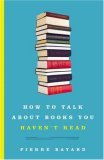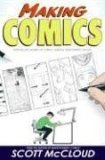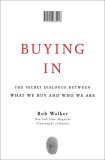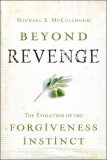One of my former occupations involved reading and summarizing a great deal of academic journal literature, especially in philosophy, so that after reading many glosses and discussions of the canonical works it seemed like I knew them, without having actually read them, as celebrities seem familiar just because they’re talked about so much. Thus I can appreciate Pierre Bayard’s point in ‘How to Talk About Books You Haven’t Read’ that the distinction between having read or not having read a book is too simple to capture the many ways of relating to literature. His wonderful examples of the variety of literary relations seem to belie the whole anti-conceit of non-reading, however. I’ve just copied the table of contents with a few notes since it gives a good idea of the topics and works discussed.

Ways of Not Reading
1. Books you don’t know – the librarian in Man Without Qualities by Robert Musil demonstrates “that reading any particular book is a waste of time compared to keeping our perspective about books overall”
2. Books you have skimmed – Paul Valery: “it is enough to have skimmed a book to be able to write an article about it…, with certain books it might even be inappropriate to do otherwise”
3. Books you have heard of – Umberto Eco, The Name of the Rose: “it is wholly unnecessary to have held a book in your hand to be able to speak about it in detail, as long as you listen to and read what others say about it”
4. Books you have forgotten – Montaigne: “whether a book you have read and completely forgotten, and which you have even forgotten you have read, is still a book you have read”
Literary Confrontations
5. Encounters in society – Graham Greene, The Third Man: “a nightmarish situation where the hero finds himself facing an auditorium full of admirers impatiently waiting for him to speak about books that he hadn’t read” [The character Rollo Martins writes westerns under the pseudonym Buck Dexter and is confused with a “highbrow novelist” named Benjamin Dexter.]
6. Encounters with professors – Laura Bohannon “Shakespeare in the Bush” about reading Hamlet to the Tiv: “it is wholly unnecessary to have opened a book in order to deliver an enlightened opinion on it, even if you displease the specialists in the process”
7. Encounters with the writer – Pierre Siniac’s Ferdinaud Céline: “it may be important to watch what you say the presence of a writer, especially when he himself hasn’t read the book whose author he is.” [a complicated plot in which the book the author thought he wrote was changed by the typist]
8. Encounters with someone you love – Bill Murray in Groundhog Day: “the ideal way to seduce someone by speaking about books he or she loves without having read them yourself would be to bring time to a halt.”
Ways of Behaving
9. Not being ashamed – David Lodge: “the first condition for speaking about a book you haven’t read is not to be ashamed” [describes game of Humiliation in Changing Places, in which participant scores points by coming up with books that nearly everyone has read, but which he hasn’t, exhibiting one’s lack of cultural knowledge, so competitiveness conflicts with desire to appear well-read.]
10. Imposing your ideas – Balzac, Lost Illusions: “one key to imposing your point of view on a book is to remember that the book is not a fixed object, and that even tying it up with string will not be sufficient to stop its motion.”
“Everything is bilateral in the domain of thought. Ideas are two-sided. Janus is the tutelary deity of criticism and the symbol of genius.” p. 143, citing Balzac p. 372
11. Inventing books – Soseki, I Am a Cat: “we follow the advice of a cat and an artist in gold-rimmed spectacles, who each, in different fields of activity, proclaim the necessity of invention.”
p. 157
But our anxiety in the face of the Other’s knowledge is an obstacle to all genuine creativity about books. The idea that the Other has read everything, and thus is better informed than us, reduces creativity to a mere stopgap that non-readers might resort to in a pinch. In truth, readers and non-readers alike are caught up in an endless process of inventing books, whether they like it or not, and the real question is not how to escape that process, but how to increase its dynamism and its range.
also Soseki, Grass on the Wayside
12. Speaking about yourself – Oscar Wilde, “To read, or not to read,” Selected Journalism, also “The critic as artist“: “the appropriate time span for reading a book is ten minutes, after which you risk forgetting that the encounter is primarily a pretext for writing your autobiography”
p. 178 The paradox of reading is that the path toward ourselves passes through books but that this must remain a passage. It is a traversal of books that a good reader engages in—a reader who knows that every book is the bearer of part of himself and can give him access to it, if only he has the wisdom not to end his journey there.
 Mind Hacks had a recent post (“Consciousness happens between the panels“) discussing Scott McCloud’s Understanding Comics: The Invisible Art (1993). I’m also a fan of McCloud’s work, and I’ve just recently been browsing through his Making Comics: Storytelling Secrets of Comics, Manga and Graphic Novels (2006), which has a wonderful section on emotions and facial expressions. He has another book, Reinventing Comics: How Imagination and Technology Are Revolutionizing an Art Form, (2000) that I haven’t seen.
Mind Hacks had a recent post (“Consciousness happens between the panels“) discussing Scott McCloud’s Understanding Comics: The Invisible Art (1993). I’m also a fan of McCloud’s work, and I’ve just recently been browsing through his Making Comics: Storytelling Secrets of Comics, Manga and Graphic Novels (2006), which has a wonderful section on emotions and facial expressions. He has another book, Reinventing Comics: How Imagination and Technology Are Revolutionizing an Art Form, (2000) that I haven’t seen. 







